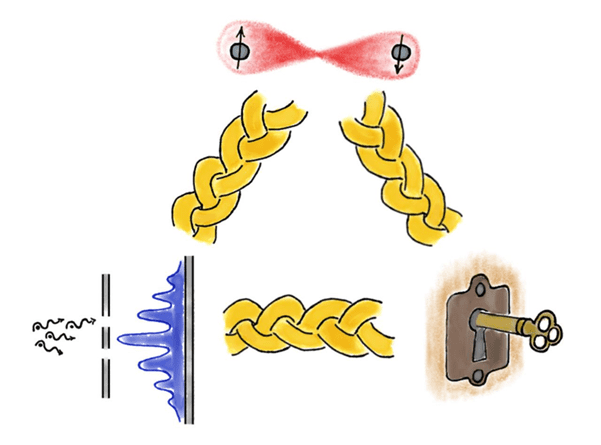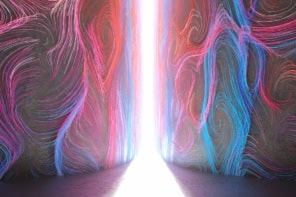
When a forest loses its trees, it also loses its identity as a forest (as well as creating an ecological disaster). Similarly, quantum theory would be a different beast altogether without the defining effects of superposition and entanglement. However, the converse is not necessarily true. The two physical effects can be observed independently of the theoretical framework used to explain them, and an international team of researchers has now shown that the connection between them does not hinge on quantum theory’s mathematical formalism either. In practical terms, the result opens the door to realizing quantum cryptography even if quantum theory proves incorrect.
Quantum theory is one of the most successful theories in physics to date. Despite its non-intuitive nature, its predictions have consistently agreed with empirical observations. Over time, emerging applications such as quantum computing and quantum cryptography have received considerable interest from industry. However, it remains a challenge to reconcile it with gravity, which suggests that quantum theory may be superseded or overthrown by another more complete theory in the future. This is a natural process in scientific evolution, where falsified theories are discarded and the paradigm shifts as a result.

Although entanglement and superposition are widely observed in the lab, it was the mathematical formalism provided by quantum theory that previously explained how the two concepts were related. This left their exact relationship prone to future corrections.
General probabilistic theories
In the latest work, which is described in Physical Review Letters, the researchers proved that in any physical theory, entanglement can exist between different systems if and only if superposition can exist in each of them. The result yields an equivalency between the two concepts that extends beyond the quantum realm.
To show that the connection between superposition and entanglement holds in any physical theory, the researchers used a framework called general probabilistic theories. This framework provides a general mathematical description for the key requirements of a physical theory: physical states, their transformations and measurements. The framework encompasses both classical and quantum theory. More importantly, it also includes more exotic theories that exhibit typically quantum features such as superposition and entanglement. For example, in one such non-classical theory, known as “Boxworld”, the non-local correlations that characterize entanglement can be so strong that they surpass what is allowed by quantum theory.
Quantum cryptography
The link between this result and quantum cryptography is that the latter uses features of quantum theory to provide secure information transfer between two parties. A notable example is the textbook protocol BB84, which uses entanglement to ensure that any hacker can be detected and excluded from the communication. If this protocol were to become widely adopted, only for its unhackability to be overturned by a new theory, catastrophic consequences could ensue. For instance, vast swathes of sensitive data, such as credit card details, could be compromised by evil actors.

Distillation method strengthens quantum entanglement in a single pair of photons
The novel theory-independent connection implies that this apocalyptic depiction is unlikely to become reality, as the researchers show that the protocol can be realized according to any non-classical theory. In a press release coinciding with the publication of the research, Ludovico Lami, a co-author of the paper and a physicist at the University of Ulm, Germany, stated: “It is somehow reassuring to know that cryptography is really a feature of all non-classical theories, and not just a quantum oddity, since many of us believe that the ultimate theory of nature will likely be non-classical.”



